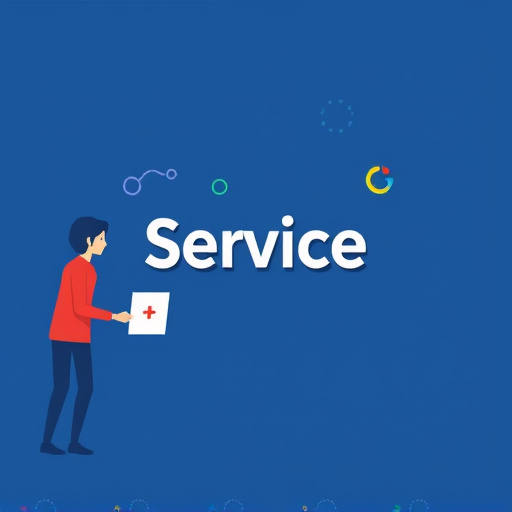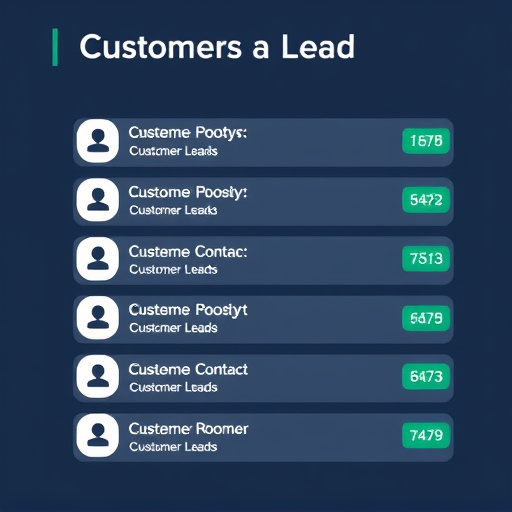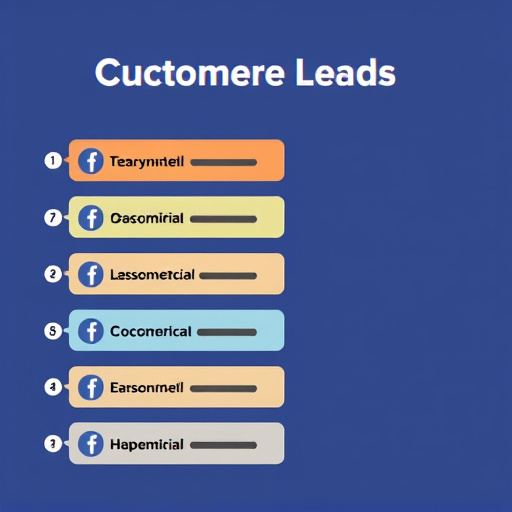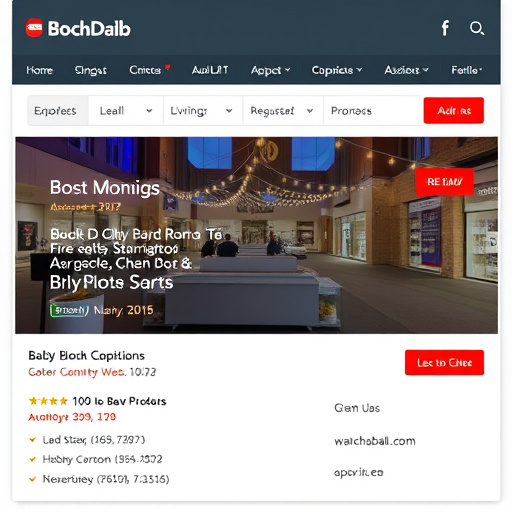SEO for Service Businesses: Unlocking Digital Visibility and Growth
Introduction
In today’s digital age, the online presence of service businesses is more crucial than ever. Search Engine Optimization (SEO) has emerged as a powerful strategy to enhance visibility, attract potential clients, and drive sustainable growth. This comprehensive article delves into the intricacies of SEO specifically tailored for service-oriented companies, exploring its impact, components, trends, and future prospects. By understanding and implementing effective SEO practices, service businesses can navigate the competitive online landscape and thrive in an increasingly digital world.
Understanding SEO for Service Businesses
Definition: SEO for service businesses refers to the process of optimizing websites and online content to improve their search engine rankings and visibility when potential clients search for specific services. It involves a range of strategies, from keyword research and high-quality content creation to link building and technical optimization.
Core Components:
-
Keyword Research: Identifying relevant keywords and phrases that service businesses target to attract their ideal customers. Tools like Google Ads Keyword Planner and SEMrush can assist in this process.
-
On-Page Optimization: Optimizing website content, including titles, meta descriptions, headings, and body text, to include targeted keywords naturally. This ensures search engines understand the page’s context.
-
High-Quality Content Creation: Producing valuable, informative, and engaging content that addresses the needs and questions of potential clients. Blog posts, service pages, and case studies are examples of content formats.
-
Link Building: Acquiring backlinks from reputable websites within the same industry or niche. This signals to search engines that the business is a trusted resource, enhancing its authority.
-
Technical SEO: Ensuring the website is crawlable and indexable by search engine bots. This includes optimizing site speed, mobile-friendliness, XML sitemaps, and robots.txt files.
Historical Context: The concept of SEO has evolved significantly since its early beginnings in the 1990s. Initially, keyword stuffing was a common practice, but search engines quickly adapted, leading to the development of more sophisticated optimization techniques. Google’s algorithm updates have played a pivotal role in shaping modern SEO, with an emphasis on user experience and high-quality content.
Significance: For service businesses, effective SEO can lead to:
- Increased online visibility, attracting potential customers actively searching for services they offer.
- Higher search engine rankings, establishing the business as a trusted authority in its industry.
- Improved customer acquisition rates, as optimized websites tend to convert visitors more effectively.
- Cost-efficiency, as organic search results are free, unlike paid advertising.
- Long-term sustainability, building a solid online reputation that can endure over time.
Global Impact and Trends
SEO for service businesses has a profound global impact, with regions adopting and adapting these practices to suit local markets.
International Influence:
-
North America and Europe: These regions are at the forefront of SEO innovation, with advanced tools and techniques widely adopted. Businesses here often focus on long-tail keywords and localized optimization for specific cities or regions.
-
Asia-Pacific: Rapid digital transformation in this region has led to a surge in online service businesses. Countries like China and Japan have unique search engines (e.g., Baidu, Yahoo! Japan) that influence local SEO strategies.
-
Latin America and Middle East: These markets are witnessing increased competition as regional economies grow. SEO professionals here focus on keyword research specific to local languages and cultural nuances.
Trends Shaping the Trajectory:
-
Voice Search Optimization: With virtual assistants like Siri and Alexa gaining popularity, voice search is becoming a significant traffic source. Optimizing content for voice queries, such as “best accounting services near me,” is crucial.
-
Local SEO Dominance: As more users turn to search engines for local business information, local SEO has become indispensable. Google’s Local Search results and Google Maps optimization are essential for service businesses with physical locations.
-
Mobile Optimization: The rise of smartphones has made mobile browsing the norm. Responsive web design and fast loading times are critical for retaining mobile users and improving overall SEO performance.
-
Video Content Integration: Video is increasingly becoming a preferred medium for content consumption. Service businesses can leverage video SEO by optimizing titles, descriptions, and tags to rank in video search results on platforms like YouTube and Google Search.
Economic Considerations
The economic landscape plays a pivotal role in shaping the success of SEO efforts for service businesses.
Market Dynamics:
-
Competition: The level of competition within an industry directly impacts SEO strategies. Highly competitive markets may require more sophisticated techniques and significant investment to maintain visibility.
-
Target Audience: Understanding the demographics and online behavior of the target audience is essential. Different age groups, genders, and interests may use varying search terms, influencing keyword research.
Investment Patterns:
-
Budget Allocation: Service businesses allocate SEO budgets based on their specific goals and market analysis. Some companies invest in in-house teams, while others outsource to specialized agencies.
-
ROI (Return on Investment): Measuring the success of SEO campaigns is crucial for justifying investments. Tools like Google Analytics and Search Console provide insights into traffic, rankings, and conversion rates.
Role in Economic Systems:
-
Customer Acquisition and Retention: Effective SEO helps businesses attract new customers and retain existing ones, contributing to economic growth and stability.
-
Job Creation: The digital marketing industry, including SEO, has seen substantial job creation, especially in emerging markets with a focus on digital transformation.
Technological Advancements
Technology has been a driving force behind the evolution of SEO for service businesses.
Impactful Innovations:
-
Artificial Intelligence (AI) and Machine Learning: AI-powered tools can analyze vast amounts of data to predict search trends, identify content gaps, and optimize meta tags automatically. Google’s RankBrain is an example of an AI algorithm that learns from user search patterns.
-
Natural Language Processing (NLP): NLP enables machines to understand human language, leading to more accurate information retrieval. This technology improves voice search results and semantic search capabilities.
-
Visual Search: With the rise of visual content sharing, visual search engines are gaining traction. Businesses can optimize their product images for visual search, expanding their online visibility.
Future Potential:
-
Personalized Search Results: AI will continue to shape personalized search experiences, displaying results tailored to individual users’ preferences and locations.
-
Augmented Reality (AR) and Virtual Reality (VR): These technologies offer immersive experiences, which can be leveraged for interactive SEO campaigns, especially in industries like real estate and travel.
-
Internet of Things (IoT): As IoT devices become more prevalent, they will generate vast amounts of data, influencing search patterns. Optimizing content for these connected devices presents new opportunities.
Policy and Regulation
The legal and regulatory environment significantly impacts the practice of SEO for service businesses.
Key Policies and Regulations:
-
Data Privacy Laws (e.g., GDPR, CCPA): These laws govern how businesses collect, store, and use user data, including online behavior tracking required for effective SEO. Compliance is essential to avoid legal repercussions.
-
Antitrust and Competition Laws: Search engines operating in many countries are subject to antitrust regulations to prevent market dominance. This affects their algorithms and the way they rank websites.
-
Industry-Specific Regulations: Certain industries, such as healthcare and finance, have specific data security and privacy requirements that impact online marketing strategies, including SEO.
Influence on Development:
-
Transparency and Consumer Protection: Regulatory bodies often emphasize transparency in how search engines display results, ensuring consumers access relevant and reliable information.
-
Ethical SEO Practices: Businesses must adhere to ethical guidelines to avoid black hat SEO techniques, which can result in penalties from search engines. Reputable SEO professionals promote sustainable practices that align with search engine policies.
Challenges and Criticisms
Despite its numerous benefits, SEO for service businesses faces several challenges and criticisms.
Main Challenges:
-
Dynamic Search Engine Algorithms: Search engines regularly update their algorithms, making it challenging to keep up with the changing ranking factors. This requires continuous optimization and adaptation.
-
Competition and Keyword Saturation: Highly competitive industries can make it difficult for businesses to rank for relevant keywords, especially for new or small companies.
-
Content Creation and Freshness: Consistently producing high-quality, unique content is demanding, particularly for service businesses that require frequent updates and case studies.
Criticisms and Solutions:
-
Black Hat SEO Practices: Some businesses employ unethical tactics like keyword stuffing and link farming, which can harm their website’s reputation and lead to penalties. To combat this, search engines actively update their algorithms to detect and penalize such practices. Ethical SEO education and guidelines are essential.
-
Mobile-First Indexing: With the rise of mobile search, Google’s mobile-first indexing prioritizes mobile-optimized websites. This challenge is addressed by ensuring all websites are responsive and optimized for various devices.
-
Voice Search and Long-Tail Keywords: Optimizing for voice search requires a shift in content strategy, focusing on conversational language and long-tail keywords. Businesses can overcome this by incorporating natural language queries into their content.
Case Studies: Successful SEO Implementations
Case Study 1: Digital Transformation of a Local Law Firm
Challenge: A small local law firm struggled to compete with larger firms in online search results, receiving minimal organic traffic.
Strategy: The firm invested in comprehensive SEO optimization, targeting local keywords and creating informative content on their website. They also built high-quality backlinks from reputable legal directories and local business associations.
Outcome: Within 6 months, the law firm’s website ranking improved significantly for targeted keywords like “best family lawyer in [city]”. Organic traffic increased by 250%, leading to a 30% growth in new client acquisitions through online sources.
Case Study 2: E-commerce Store’s SEO Revolution
Challenge: An online clothing retailer wanted to increase sales and stand out in a crowded e-commerce market.
Strategy: They focused on creating compelling product descriptions, optimizing images with alt tags, and implementing structured data markup for products. Additionally, they utilized influencer marketing and guest blogging to build backlinks.
Outcome: The SEO efforts resulted in a 40% increase in organic traffic within 3 months. Conversions rose by 20%, significantly contributing to the store’s overall sales growth. The brand also saw an improvement in click-through rates (CTRs) for paid search ads due to better organic rankings.
Future Prospects: Trends and Strategic Considerations
The future of SEO for service businesses is filled with opportunities and challenges alike, driven by technological advancements and evolving user behaviors.
Emerging Trends:
-
Voice Assistant Integration: As voice assistants become more sophisticated, integrating them into SEO strategies will be crucial. Optimizing content for specific voice commands can increase brand visibility during hands-free searches.
-
Semantic Search: Search engines are moving towards understanding the semantic meaning of queries rather than just keywords. This requires businesses to create content that addresses user intent and provides valuable answers.
-
Local AI-Powered Search: Local search is expected to become more personalized, leveraging AI to deliver hyper-local results based on user preferences and real-time data.
Strategic Considerations:
-
Continuous Learning and Adaptation: SEO professionals must stay updated with industry trends, algorithm changes, and new technologies. Regular content audits and keyword research are essential to maintain rankings.
-
Focus on User Experience (UX): Prioritizing UX will be critical for retaining search engine rankings and user engagement. Optimizing for mobile, improving site speed, and ensuring easy navigation are key.
-
Diversify Content Formats: Diversifying content beyond blog posts, including videos, infographics, and interactive content, can enhance engagement and attract a broader audience.
-
Build High-Quality Backlinks: As search engines focus on trust and authority, earning high-quality backlinks from reputable sources will be more valuable than ever. Guest blogging, industry partnerships, and creating shareable content can help achieve this.
Conclusion: Powering Growth Through SEO
SEO for service businesses is a dynamic and ever-evolving field that plays a pivotal role in shaping digital visibility and growth prospects. By understanding the core components, global trends, economic considerations, technological advancements, policies, and challenges, businesses can develop effective strategies to thrive in today’s competitive online landscape.
The case studies presented demonstrate the transformative power of SEO when implemented successfully. As the digital realm continues to grow, service businesses that prioritize SEO will be better positioned to attract, engage, and retain customers, ultimately driving sustainable growth and success.
FAQ Section: Answering Common Concerns
Q: How long does it typically take to see results from SEO efforts?
A: Results can vary, but consistent optimization takes time. Initial improvements in rankings and traffic may take several months, while significant gains often manifest within 6-12 months, depending on the competitiveness of the industry.
Q: Is investing in SEO worth it for small service businesses?
A: Absolutely! SEO provides long-term benefits with minimal ongoing costs once established. Even smaller businesses can see substantial returns, including increased brand awareness and a steady stream of targeted customers.
Q: How can service businesses stay ahead of algorithm updates?
A: Regularly reviewing search engine guidelines, keeping up with industry news, and staying informed about algorithm changes are essential. Using SEO tools to monitor rankings and traffic can also help identify potential issues early on.
Q: What is the role of content marketing in SEO for service businesses?
A: Content marketing is crucial as it provides valuable information to potential customers, addresses their pain points, and establishes the business as an authority. Optimized content drives organic traffic, improves user engagement, and supports overall SEO efforts.
Q: How important is mobile optimization for SEO?
A: Mobile optimization is essential, given the surge in mobile internet usage. Google’s mobile-first indexing means mobile-friendly websites are prioritized in search results, ensuring a positive user experience across all devices.
Artificial Intelligence (AI) is revolutionizing local search and content discoverability. Platforms like Reviewly Local Search use AI to analyze user data, providing personalized content delivery and targeted business recommendations. This boost…….
Structured content and data optimization, powered by tools like Reviewly Local Search, significantly boost online visibility for local businesses. By analyzing digital footprints, optimizing meta tags, and guiding listing claims on platforms lik…….
Reviewly Local Search harnesses AI to optimize content discoverability for local businesses, enhancing visibility in search results through personalized data analysis. By understanding user preferences and behaviors, this technology ensures rele…….
Brand authority, a key metric for service businesses in the digital realm, significantly impacts customer behavior and search engine rankings. Natural Language Processing (NLP) is revolutionizing content creation by enhancing user understanding…….
Local search optimization is crucial for service-oriented businesses to compete and attract nearby customers. Effective strategies include NAP consistency, detailed service descriptions with relevant keywords, Google My Business profile optimiza…….
Voice and AI search technologies are reshaping how users access information, requiring service businesses to adapt their SEO strategies. To stay relevant, they should optimize content for semantic understanding and conversational language, integ…….
In today's competitive market, local search optimization is crucial for businesses aiming to thrive locally. Customers increasingly rely on platforms like Reviewly Local Search for nearby service discoveries, making it vital for businesses…….
Entity-based SEO is a strategic approach for service businesses aiming to enhance online presence and attract targeted customers by optimizing content around specific, relevant niches (e.g., 'artisanal sourdough bread in Sydney'). This…….
Natural Language Processing (NLP) is revolutionizing local search by understanding user queries and providing precise, personalized results. Platforms like Reviewly Local Search harness NLP to offer tailored business listings, enhance online vis…….
Brand authority, crucial for local search success, is built through consistent, high-quality content that establishes expertise. Natural Language Processing (NLP) enhances this by analyzing customer reviews and feedback from various sources, ena…….
Brand authority, driven by trust and credibility, is a key differentiator in today's digital era, especially for local businesses. Natural Language Processing (NLP) enables platforms like Reviewly Local Search to optimize content based on c…….
In the digital era, local search is vital for businesses aiming to connect with their community, with consumers heavily relying on online reviews and search engines. Reviewly Local Search is an AI-powered platform that enhances online presence f…….
SEO for Service Businesses is a powerful strategy to enhance online visibility and attract customers. By optimizing digital presence through keyword usage, enhanced content, and quality backlinking, businesses can rank higher on search engines……..
Structured Content Optimization (SCO) enhances local search rankings by organizing key business info and customer reviews on your website, increasing visibility on platforms like Reviewly Local Search. This boosts online reputation, credibility,…….
Natural Language Processing (NLP) is revolutionizing local search by enabling machines to understand human language and intent, providing more accurate search results. Reviewly Local Search leverages NLP for content optimization, helping busines…….
Content discoverability is crucial for service businesses' digital marketing success. AI optimization, leveraging machine learning and natural language processing, enhances SEO by analyzing user behavior and trends. Reviewly Local Search of…….
Entity-driven content is a powerful SEO for service businesses strategy that focuses on providing detailed local entity information to attract and guide users through their search journey. By incorporating relevant entities like "plumbing s…….
In today's digital era, Reviewly Local Search leverages AI to empower businesses with a powerful local search strategy. By optimizing content using machine learning algorithms, this platform enhances online visibility for local companies, d…….
Structured content is a powerful strategy for businesses to boost online visibility and local search rankings on platforms like Reviewly Local Search. By organizing website information with headings, subheadings, and bullet points, businesses cr…….
In today's digital era, boosting content discoverability is key to business success. AI optimization revolutionizes this process by enhancing search engine rankings and user engagement through personalized content delivery. Platforms like R…….



















